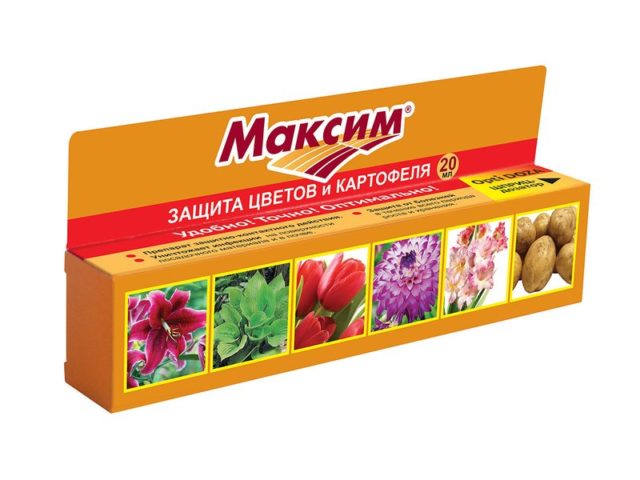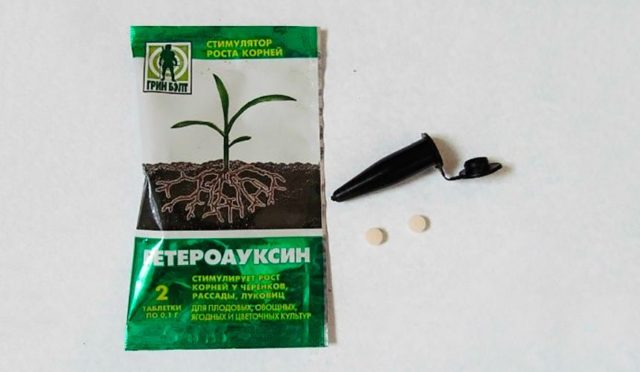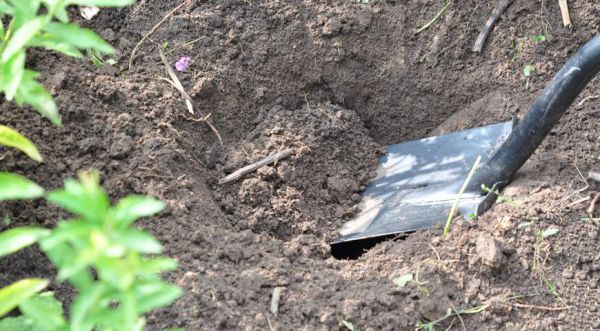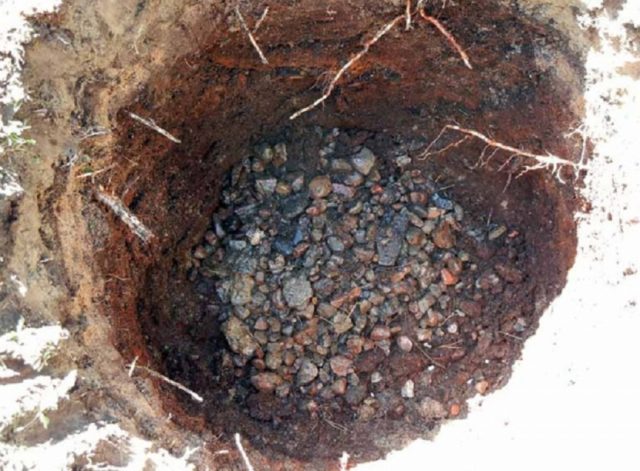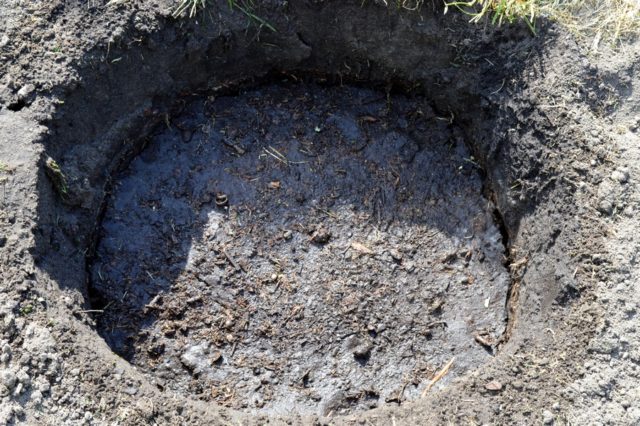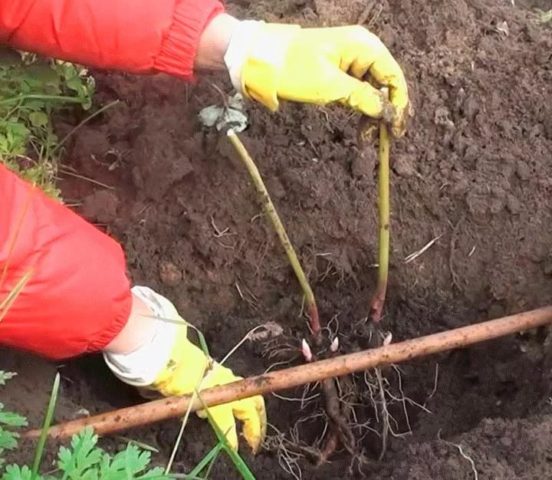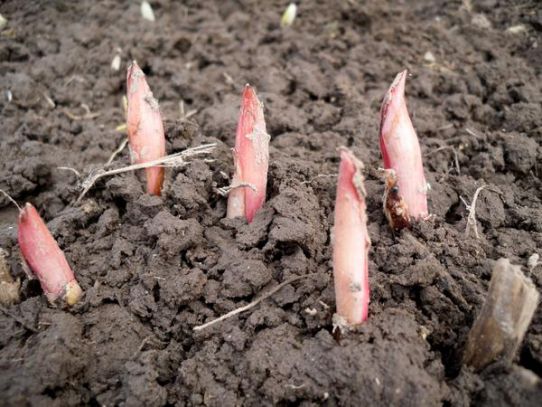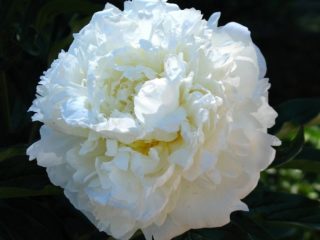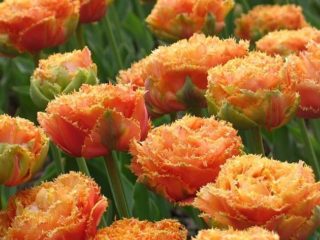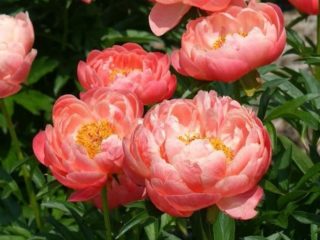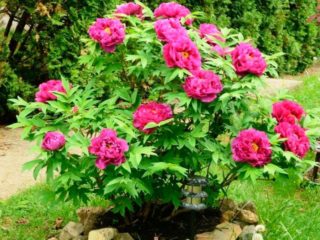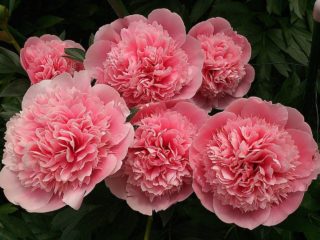Content
Peony Salmon Glory is a herbaceous perennial. Its creators are American breeders. The variety was bred in 1947. In one place, beautiful peonies bloom profusely for more than 10 years.
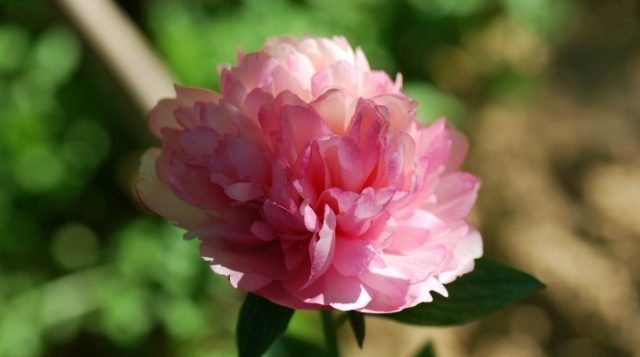
Despite such a venerable age, the variety continues to be popular.
Description of peony Salmon Glory
The Salmon Glory peony variety belongs to tall collection plants, the shoots reach 75-85 cm. The stems are powerful, thick. But since there are many buds and they are heavy, you cannot do without a support.
The bush grows quickly, it is spreading, therefore it requires a lot of space for normal growth. Leaves are rich green, wide.
For planting, you can choose partial shade, but the peony's color palette is best revealed in a sunny, draft-protected area. The Salmon Glory variety is frost-resistant. The culture is recommended for cultivation in almost all regions of Russia.
Flowering features
Salmon Glory peonies are large-flowered varieties with large double buds, their diameter is about 20 cm. Up to 20 inflorescences bloom on one adult bush.
The petals are pink-coral, pressed together very tightly, so that the core is not visible. Their sizes are gradually decreasing. The outer petals are much larger than those in the center.
Early flowering, but the splendor of the buds depends on:
- the correct landing site;
- soil composition;
- timely feeding and protection from diseases and pests.
To understand the features of Salmon Glory peonies, it is better to watch the video at the end.
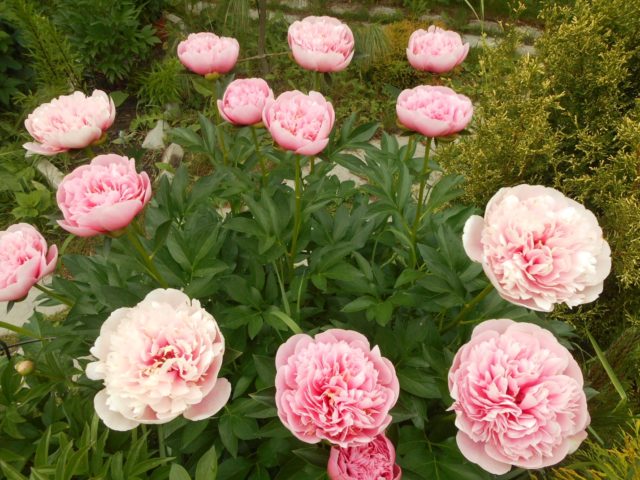
The plant is famous for its long flowering - up to three weeks
Application in design
Before buying a Salmon Glory variety, you need to think in advance where to place the plants. They can be planted singly or in flower beds with other garden flowers. In order not to spoil the landscape design, you should decide which plants can coexist with peonies.
What you need to pay attention to:
- Flowers must match. Crops with the same color should not be planted next to Salmon Glory pink-salmon peonies.
- Flower beds look great if the variety is supplemented with irises and delphiniums, lilies and bells, clematis. Only their inflorescences should be of a contrasting color.
- You can plant Salmon Glory peonies on flat green lawns.
- Tall deciduous trees, conifers, including juniper, perfectly set off the pink-salmon color. It is only necessary to plant peonies at a distance so that there is no strong shade.
Leave sufficient distance between Salmon Glory bushes and other horticultural crops so that they do not interfere with each other.
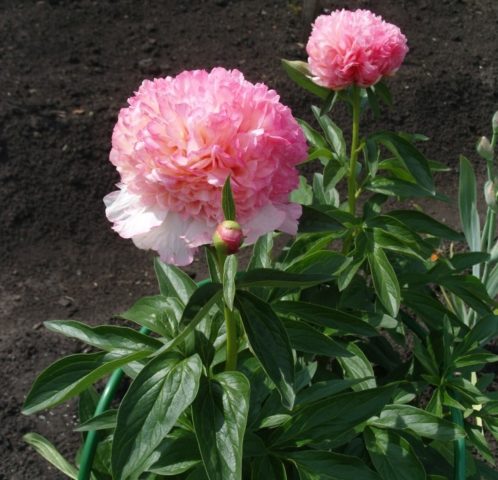
A culture is suitable for growing and on balconies, only vases need to be taken voluminous
Reproduction methods
Peony variety Salmon Glory can be propagated:
- seeds;
- dividing the bush;
- green cuttings;
- layering.
The most effective gardeners consider dividing rhizomes or growing seedlings from cuttings.
Landing rules
The further development of the bushes will depend on how Salmon Glory peonies are planted. You need to decide on the timing of planting, the choice of location, the preparation of seedlings.
Landing dates
You can plant Salmon Glory peonies in spring or autumn. In cold regions, it is better to plan work in the spring so that the plants take root well by winter and do not die.
In the spring, flowers can be planted until the buds wake up. Autumn work is performed depending on the region:
- middle band - during September;
- Siberia, Ural, Leningrad region - from the last days of August to mid-September;
- Krasnodar Territory, North Caucasus - at the end of September and until October 15.
If it was not possible to plant peonies in the open ground in the fall, the seedling is placed in a pot and left on the loggia for the plant to take root. When the temperature outside drops below 0 degrees, a hole is dug in the garden bed, a Salmon Glory peony is placed in it and covered. In the spring, they are transplanted to a permanent place.
Preparation of planting material
Only high-quality seedlings will allow you to get lush and healthy Salmon Glory peonies.
Selection and preparation tips:
- the cut is chosen from 3-4-year-old bushes, each should have from three to five buds;
- if the plot is two years old, then a rhizome is chosen, on which at least two buds;
- there should be no damage and blackness on the rhizomes;
- root length - at least 20 cm;
- seedlings that smell like rot or have mold are not suitable for planting.
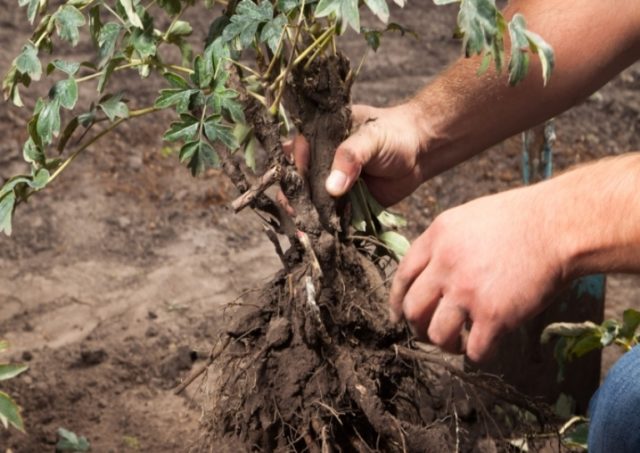
After separation, the green mass is cut to a third of the length
Before planting, Salmon Glory peonies are examined, damaged, disinfected with ash, potassium permanganate solution or Maxim.
In order for rooting to be successful, the roots are dipped in a special composition, for which they take 10 liters of water:
- "Heteroauxin" - two tablets;
- copper sulfate - 50 g;
- clay.
The roots are dipped in a creamy solution, then dried in the shade for 24 hours.
Site and soil selection
Salmon Glory peony prefers a sunny, draft-free place, lit all day. In the shade, the plant blooms poorly or, in general, does not form buds. There must be at least 1 m from the fence or building. The flowerbeds are located on an elevated site, where groundwater occurs at a height of at least 1 m.
There is no need to choose a place where spreading trees grow, they give a strong shade.
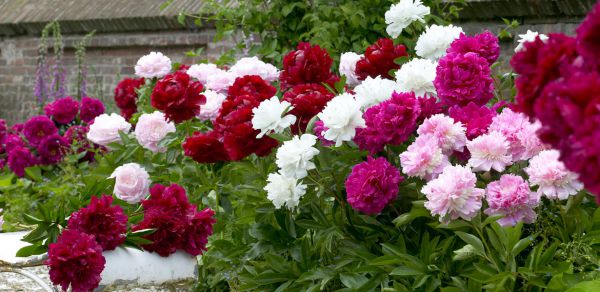
Ideal to plant in the south or southwest part of the garden area
As for the soil, Salmon Glory peonies are unassuming. But they bloom profusely on slightly acidic, moisture-consuming and drained soils. The soil is filled with nutrients before planting. Use mineral or organic fertilizers.
Pit preparation
If you plan to plant several peony bushes on the site, then the holes are placed in increments of at least 1 m.They are prepared in 30 days so that the soil has time to settle.
Stages of work:
- The soil is dug up, the roots of weeds are selected.
It is preliminarily recommended to water the ground well
- The pit should be about 80 cm deep and about 70 cm wide.
- The bottom is filled with a drainage layer of broken brick, gravel or coarse sand.
The drainage layer should be about 15-20 cm, especially in lowlands
- The soil selected from above is mixed with compost or humus (one bucket), wood ash (300 g) and superphosphate (100 g), poured into the pit.
Fill with soil, leaving 10 cm to the edge
Landing algorithm
Peonies are planted, including the Salmon Glory varieties, in the same way:
- A mound is made in the center and the plant is placed, having previously straightened and placed the roots down. Growth buds are instilled to a depth of no more than 3-4 cm.
Root breaks are unacceptable, otherwise the plant will not take root well
- Water the seedling to remove air pockets and sprinkle it with earth again.
- After the next watering, it is advisable to mulch the soil.
In the spring, friendly shoots will appear on the site
Follow-up care
Further care for peonies, including the Salmon Glory varieties, is traditional:
- watering and feeding;
- weed removal and mulching;
- loosening the soil.
You need to water the bushes sparingly, since the roots do not like stagnant water. In dry weather, you need to irrigate more often, when it rains, stop altogether. One peony requires about 10 liters of water.
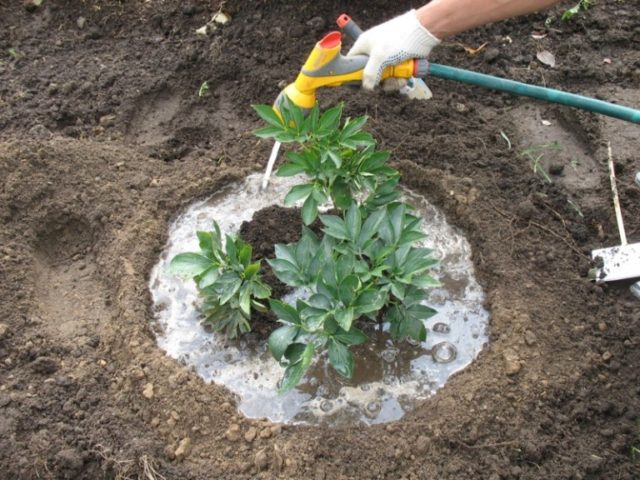
Water is poured into a groove in the root zone of the bush, trying not to erode the soil around the shoots
Peonies are fed several times during the growing season:
- In early spring, pour a solution of potassium permanganate over the snow, then with ammonium nitrate (for 10 liters of water - 15 g). Use mineral fertilizers for foliar top dressing. To make the composition last longer, add 1 tbsp to the solution. l. washing powder.
- When buds are formed, the plants are watered with a solution consisting of superphosphate (10 g), ammonium nitrate (7.5 g), potassium salt (5 g) in a bucket of water. Sprinkle well with wood ash.
- After flowering, add organic matter for planting, for example, compost, humus.
Preparing for winter
Peony Salmon Glory is a herbaceous plant, so in autumn the shoots are cut out, leaving only 1-2 cm. Work is planned for late autumn, when a stable subzero temperature is established.
Cut leaves and shoots are burned, even if the plants are not sick. Then the bush is abundantly sprinkled with wood ash.
Since Salmon Glory is a frost-resistant peony, you only need to sprinkle the root zone of the bushes with humus or compost.
Pests and diseases
Peonies are resistant to many diseases and pests. Problems most often arise due to disturbance of agricultural technology or prolonged cold rains.
Peonies Salmon Glory suffer from gray rot (botrytis). It spreads to foliage, stem, buds, a gray bloom appears. At the slightest sign or for prevention, you need to spray the bushes and the soil around with a solution of copper sulfate or infusion of garlic.
Of the pests, peonies are often annoyed by aphids and ants. Plants should be sprinkled with ash or special preparations should be used.
Conclusion
Peony Salmon Glory is a proven variety for decades. It is better to buy planting material in specialized stores or from experienced florists. Plants planted in the fall will delight you with fragrant and unusually large buds the next year.
